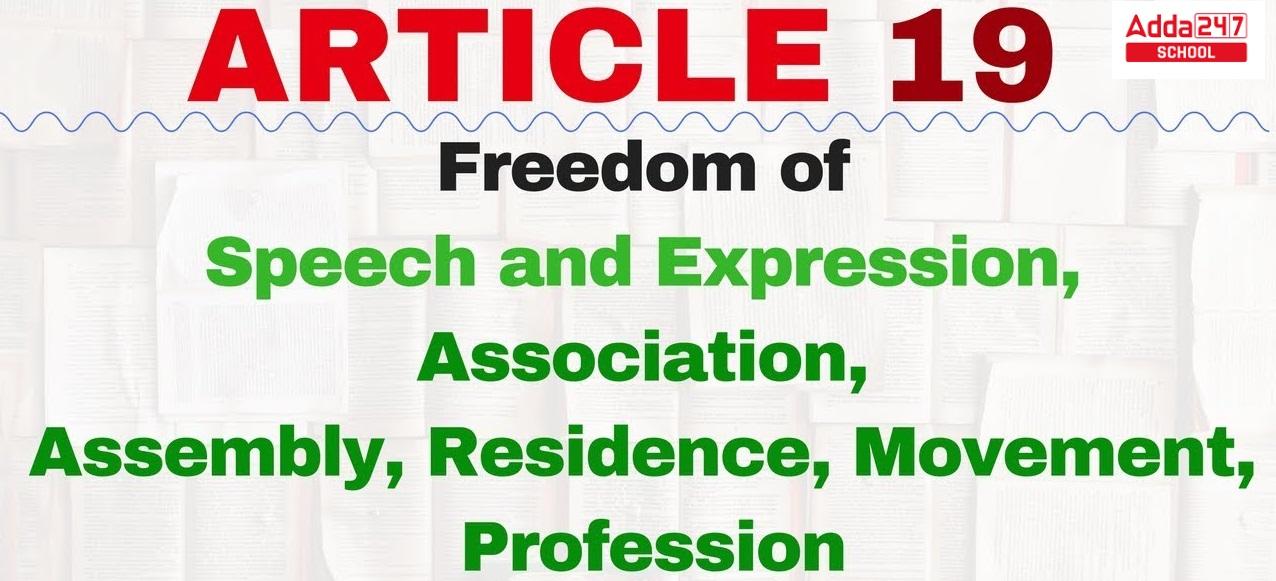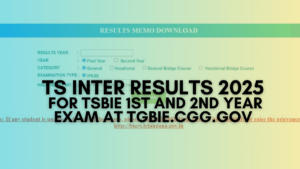Table of Contents
Article 19 of Indian Constitution – Freedom of Speech
Article 19 of Indian Constitution: It has been seen in India that the leaders make many inflammatory speeches/remarks during different types of election programs/speeches, which incite fire. Such leaders first of all do the work of keeping their words within the scope of freedom of speech, but it is the task of the Indian court to check the freedom of speech. The Indian court has given such a decision, on which many people Many questions will arise in the minds of people regarding India’s democracy and freedom of speech in India.
That is why in today’s article, we have provided you with all the information about the Rahul Gandhi Defamation Case and Article 19 of the Indian Constitution and Freedom of Speech under it with this, we have also provided you information on Rahul Gandhi Case Analysis, understand in understanding this whole matter.
What is Rahul Gandhi’s Defamation Case? – Explained
In April 2019, in one of Rahul Gandhi’s speeches during the Lok Sabha elections in Karnataka, he targeted the “Modi community” and gave a speech “Why do all thieves have Modi as their surname?”
Angered by this, BJP MLA Purnesh Modi in Gujarat filed a defamation case against Rahul Gandhi in Ahmedabad’s Metropolitan Court in April 2019. As a result, on March 23, 2023, after a 4-year-long case, Chief Judicial Magistrate Surat HH Verma sentenced Congress leader and MP (currently former MP) Rahul Gandhi to 2 years imprisonment. Presently Rahul Gandhi is out on bail.
What is Article 19 of Indian Constitution?
Provisions related to Defamation in the Indian Constitution: The defamation case is related to Article 19 under the Indian Constitution, in which defamation is usually done by misusing the freedom of speech.
Under its related section 499 and section 500 of the Indian Penal Code, a provision has been made for punishment for the concerned person found punished during the defamation case of any person.
Article 19 of Indian Constitution Freedom of Speech in India
Article 19(1) of Indian Constitution – Article 19(2) of Indian Constitution
Freedom of speech is not absolute in India; the reasonable restrictions have been imposed on it. Under Article 19(2) of the Constitution of India, it has been stated that the State can impose reasonable restrictions on the fundamental right of Freedom of Speech given to Indian citizens under certain special reasons, and its basis is the unity, integrity, and sovereignty of India. Based on security and friendly relations with foreign states, public order, decency, morality, and contempt of court, can be imposed based on offenses like defamation and incitement.
These Reasonable Restrictions can be imposed on all those Freedoms of Speech which are guaranteed in Article 19(1) of the Indian Constitution.
Article 19(1) of the Indian Constitution
Article 19(1) of the Indian Constitution states that “all citizens of India shall have all rights to Freedom of Speech and Expression”. Under the rights of Freedom of Speech and Expression, the right to express one’s opinion, the right to hold one’s behaviors, the right to hold one’s views, for which written form, speaking form, electronic media, printing form, etc. will be adopted.
Also included is the right to collect, and the right to disseminate any related information. It is an important right under Indian democracy which handles the functioning of a free and open society.
Rahul Gandhi’s Defamation Case -Consequences
As a result of the Rahul Gandhi defamation case, Rahul Gandhi has been disqualified from the post of MP from the date of his conviction. Because behind this a legal process works which is called the “Representation of People’s Act 1951”.
Under this, if any MP or MLA is convicted of a crime and he is sentenced to two or more years, then from the time when he is sentenced, he will lose his MP or MLA. He will also lose his post, and he will not be able to contest elections till 6 years after his release from prison.
Representation of Peoples Act 1951 relations with Defamation Provisions
Under Section 8(3) of the Representation of Peoples Act 1951, information has been given about the disqualification of MLAs and MPs, in which it is clearly stated that according to 8(3) if any person who is an MP or MLA has already been elected to the office, if he has been convicted of an offense and has been sentenced to two or more years imprisonment, he shall Will also lose his MLA or MP post.
This disqualification will be applicable till 6 years after that person is released from imprisonment. That is, if a person has been sentenced to 2 years, then when his sentence ends after 2 years, he will not be able to contest elections for the next 6 years.
[It is important to note that disqualification under section 8(3) shall disqualify an MP or MLA only if he has been sentenced to two or more years of imprisonment, for a term less than that, the MP or MLA will not be disqualified.]
Apart from this, if the imprisonment of that person has been invalidated by the High Court or by any other High Court or his conviction has been kept aside on appeal and review, then during that time that MP or MLA will not be disqualified.
The main purpose of this law is to keep such people, who have a criminal background and have been convicted by the Indian court, away from holding any public office in the process of the Indian election system, so that the integrity of the Indian election system can be maintained.
Has democracy died in India? – Is it the Death of Democracy in India?
“Indian Democracy is too giant to be dead.”
If any leader, no matter how popular he/she is, is punished after following a certain legal process under a democracy, then it is not called the death of democracy, but the upholding of the law & order.
Because, when a person commits a crime and after committing the crime there is no fear of law in his heart under democracy, then it is called the dismantling/disengagement of law and order. Following the law made by the citizens of any country cannot be named as murder or death of democracy.
Under democracy, laws are made by the governments elected by the people, which are prepared under a specific parliamentary procedure. If the Parliament means the temple of democracy wants, it can also change those laws as per the demand of its people. This parliamentary process is an integral part of democracy.
So it can be officially said that if a criminal is punished after going through the judicial process for his/her crime, then it is not the murder of democracy in any way.
[Please Note: We would like to inform you that all the information provided by us is already present in the public domain.]
Article 19 of the Indian Constitution- QNA
Ques. Which type of Freedom of Speech is exempted from Article 19 of the Indian Constitution?
Answer. The platforms or basis of Freedom of Speech under the Indian Constitution are elaborated in Article 19(1) of the Constitution, in which Article 19 (1) states that all citizens of India shall be guaranteed the right to Freedom of Speech and Expression.
The right to freedom of speech and expression includes the right to express one’s opinions, beliefs, and ideas through any medium such as writing, speech, print, or electronic media, and the right to gather and disseminate information or news. It is a crucial element of democracy and is essential for the functioning of a free and open society.
Ques. Which provision makes restrictions on freedom of speech in the Indian Constitution?
Answer. Article 19(2) of the Indian Constitution provides for the provision of Reasonable Restrictions by the State on Freedom of Speech.
Ques. What are section 499 and section 500 under the Indian Penal Code?
Answer. Under section 499 of the Indian Penal Code, this information has been given as to what would be considered defamation and when defamation would arise.
While a provision has been made under section 500 that if a person is convicted of defamation, he will be punished with imprisonment of either description for a term of two years or more.
It may include Fine or imprisonment with fine.
Ques. Will Rahul Gandhi be able to contest the 2024 elections?
Answer. Rahul Gandhi has been sentenced to 2 years imprisonment by the Surat court after being found convicted during the defamation case.
As a possibility, there is a big possibility that Rahul Gandhi will take this case to the High Court, but at present, the year 2023 is going on and the next Lok Sabha elections are to be held in month of April in 2024. That is why a clear provision has been given under the Representation of People’s Act that if a person who is holding the post of MLA / MP, if is punished for 2 years or more for any crime, then he/she shall be disqualified from being MP/MLA on the same date of conviction.
This disqualification will continue for 6 years after the end of his sentence.
So under ideal conditions, it can be said that from the present time, Rahul Gandhi will not be able to contest elections for the next 8 years.
To participate in the elections to be held in 2024, Rahul Gandhi will have to go through many obstacles, which will not go to be easy.
Ques. Will Rahul Gandhi be able to contest the 2026 elections?
Answer. According to an ideal condition, Rahul Gandhi will not be able to contest elections from 23 March 2023 to 23 March 2031. But if Rahul Gandhi’s conviction is quashed by the Superior Court or his sentence is reduced, then after that Rahul Gandhi will be able to contest the 2026 elections.
Ques. Will Rahul Gandhi be able to contest the 2031 elections?
Answer. The Lok Sabha elections are usually held from April to May. And according to an ideal condition if Rahul Gandhi’s disqualification of 8 years is also kept in mind then also Rahul Gandhi’s disqualification will end before April 2031, and we can say that Rahul Gandhi will be able to fight the 2031 Loksabha election.



 TS Inter Results 2025 Date for TSBIE 1st...
TS Inter Results 2025 Date for TSBIE 1st...
 CUET Accountancy Chapter Wise Weightage ...
CUET Accountancy Chapter Wise Weightage ...
 CUET UG Exam Date Sheet 2025 @cuet.nta.n...
CUET UG Exam Date Sheet 2025 @cuet.nta.n...










